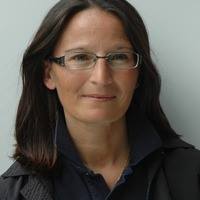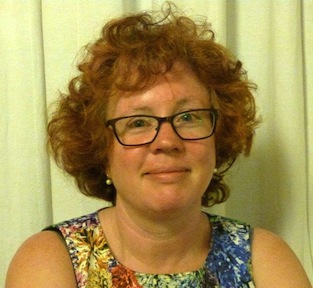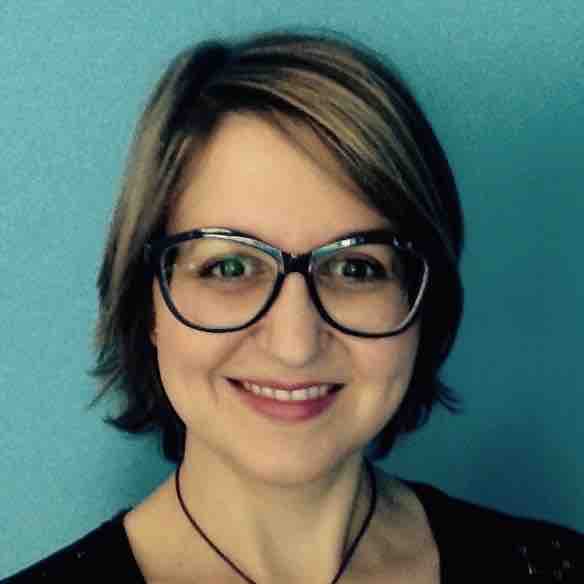Studying at the University of Verona
Here you can find information on the organisational aspects of the Programme, lecture timetables, learning activities and useful contact details for your time at the University, from enrolment to graduation.
Academic calendar
The academic calendar shows the deadlines and scheduled events that are relevant to students, teaching and technical-administrative staff of the University. Public holidays and University closures are also indicated. The academic year normally begins on 1 October each year and ends on 30 September of the following year.
Course calendar
The Academic Calendar sets out the degree programme lecture and exam timetables, as well as the relevant university closure dates..
| Period | From | To |
|---|---|---|
| I SEMESTRE | Oct 3, 2016 | Jan 21, 2017 |
| II SEMESTRE | Feb 27, 2017 | Jun 10, 2017 |
| Session | From | To |
|---|---|---|
| Lingue - SESSIONE INVERNALE | Jan 23, 2017 | Feb 25, 2017 |
| Lingue - SESSIONE ESTIVA | Jun 12, 2017 | Jul 29, 2017 |
| Lingue - SESSIONE AUTUNNALE | Aug 21, 2017 | Sep 23, 2017 |
| Session | From | To |
|---|---|---|
| Lingue - Sessione di laurea invernale | Apr 3, 2017 | Apr 8, 2017 |
| Lingue - Sessione di laurea estiva | Jul 10, 2017 | Jul 15, 2017 |
| Lingue - Sessione di laurea autunnale | Dec 18, 2017 | Dec 21, 2017 |
| Lingue - sessione di laurea invernale | Mar 23, 2018 | Mar 29, 2018 |
| Period | From | To |
|---|---|---|
| Festa di Ognissanti | Nov 1, 2016 | Nov 1, 2016 |
| Festa dell'Immacolata | Dec 8, 2016 | Dec 8, 2016 |
| Vacanze Natalizie | Dec 23, 2016 | Jan 7, 2017 |
| Vacanze Pasquali | Apr 14, 2017 | Apr 18, 2017 |
| Festa della Liberazione | Apr 25, 2017 | Apr 25, 2017 |
| Festa del Lavoro | May 1, 2017 | May 1, 2017 |
| FESTA DEL SANTO PATRONO SAN ZENO | May 21, 2017 | May 21, 2017 |
| Festa della Repubblica | Jun 2, 2017 | Jun 2, 2017 |
| Vacanze Estive | Aug 14, 2017 | Aug 19, 2017 |
Exam calendar
Exam dates and rounds are managed by the relevant Foreign Languages and Literatures Teaching and Student Services Unit.
To view all the exam sessions available, please use the Exam dashboard on ESSE3.
If you forgot your login details or have problems logging in, please contact the relevant IT HelpDesk, or check the login details recovery web page.
Should you have any doubts or questions, please check the Enrollment FAQs
Academic staff
 angela.albanese@univr.it
angela.albanese@univr.it

Bradas Marija
 marija.bradas@univr.it
marija.bradas@univr.it
 paolamaria.caleffi@univr.it
paolamaria.caleffi@univr.it
 cecilia.cantalupi@univr.it
cecilia.cantalupi@univr.it
 daniela.carpi@univr.it
daniela.carpi@univr.it
 roberta.meneghel@univr.it
roberta.meneghel@univr.it
 stella.merlin@univr.it
stella.merlin@univr.it
 sara.paolini@univr.it
sara.paolini@univr.it
 alberto.scandola@univr.it
alberto.scandola@univr.it
Study Plan
The Study Plan includes all modules, teaching and learning activities that each student will need to undertake during their time at the University.
Please select your Study Plan based on your enrollment year.
1° Year
| Modules | Credits | TAF | SSD |
|---|
1st foreign language2nd foreign language1st foreign literature2nd foreign literatureOne course to be chosen among the following2° Year activated in the A.Y. 2017/2018
| Modules | Credits | TAF | SSD |
|---|
1st foreign language2nd foreign language1st foreign literature2nd foreign literatureOne course to be chosen among the following3° Year activated in the A.Y. 2018/2019
| Modules | Credits | TAF | SSD |
|---|
1st foreign language2nd foreign language1st foreign literature2nd foreign literatureOne course to be chosen among the followingOne course to be chosen among the following| Modules | Credits | TAF | SSD |
|---|
1st foreign language2nd foreign language1st foreign literature2nd foreign literatureOne course to be chosen among the following| Modules | Credits | TAF | SSD |
|---|
1st foreign language2nd foreign language1st foreign literature2nd foreign literatureOne course to be chosen among the following| Modules | Credits | TAF | SSD |
|---|
1st foreign language2nd foreign language1st foreign literature2nd foreign literatureOne course to be chosen among the followingOne course to be chosen among the following| Modules | Credits | TAF | SSD |
|---|
Legend | Type of training activity (TTA)
TAF (Type of Educational Activity) All courses and activities are classified into different types of educational activities, indicated by a letter.
English language 2 (2017/2018)
Teaching code
4S002919
Teacher
Coordinator
Credits
9
Language
English
Scientific Disciplinary Sector (SSD)
L-LIN/12 - LANGUAGE AND TRANSLATION - ENGLISH
Period
Semester 2 dal Feb 26, 2018 al Jun 9, 2018.
Learning outcomes
Pre-requisites:
To sit the exam, students need to have already passed:
• English Language 1
• English C1 computer-based test
• English Literature 1
ERASMUS students are invited to contact the instructor
The aim of this course is providing students with the basic theoretical notions of pragmatics and an introduction to discourse analysis as well as the practical tools to analyze written and spoken texts from a pragmatics perspective. These approaches will then be applied to the analysis of political discourse.
Program
The course will focus on the linguistic analysis of spoken and written texts, with specific attention to political texts (political speeches, debates, etc.). The main concepts of pragmatics, discourse analysis, and critical discourse analysis (CDA) will be illustrated.
The main topics covered will be:
- Definition of pragmatics and discourse analysis
- Text, context, and co-text: context inside and outside the text
- Cohesion and coherence: the elements that make a text grammatically and lexically cohesive
- Speech Act Theory: Austin’s definitions of locution, illocution, perlocution; constative and performative acts; felicity conditions; Searle’s classification of speech acts.
- Grice’s Cooperation principle and conversational maxims: definition of the Cooperative Principle and of the maxims of Quantity, Quality, Relation and Manner; violating, flouting, infringing and opting out of maxims; conversational implicatures
- Face and politeness strategies: definition of the notion of positive and negative face; Face Threatening Acts; politeness strategies
- Definition of political discourse
- From discourse analysis to Critical Discourse Analysis (CDA): ideology, language and power
- The Aristotelian proofs: ethos, pathos and logos. Appealing to credibility and goodwill, rationality, emotions in political speeches.
- Other rhetoric devices in political speeches: lexical choices, metaphors, rule of three, sound bites.
- Analysis of speech acts, conversational maxims and politeness strategies in political speeches.
The course will be delivered in interactive lectures; active involvement of the students is encouraged.
Students who cannot come to class are invited to contact the instructor to obtain the password of the Moodle platfom.
| Author | Title | Publishing house | Year | ISBN | Notes |
|---|---|---|---|---|---|
| Jonathan Charteris-Black | Analysis Political Speeches | Palgrave Macmillan | 2014 | 978-0-230-27439-6 | Capitolo 1, pp. 93-100. |
| Brian Paltridge | Discourse Analysis: An Introduction | Continuum | 2006 | Chapters 1.1, 1.2, chapter 3 | |
| Musolff, A | Metaphor, irony and sarcasm in public discourse. | 2017 | Journal of Pragmatics 109: 95-104 | ||
| Siobhan Chapman | Pragmatics | Palgrave Macmillan | 2011 | 0333693442 | Pages 1-13; 19-23; chapter 4; 132-141 |
| Joan Cutting | Pragmatics: a resource book for students (Edizione 3) | Routledge | 2015 | 978-0-415-53437-6 | eccetto sezioni 5 e 8 / NOT sections 5 and 8 |
| Biria, R. Mohammadi, A | The socio pragmatic functions of inaugural speech: A critical discourse analysis approach. | 2012 | Journal of Pragmatics 44(10): 1290-1302 |
Examination Methods
Pre-requisites:
To sit the exam, students need to have already passed:
• English Language 1
• English C1 computer-based test
• English Literature 1
The final exam will be written and it will focus on the topics covered during the course, that is, lesson slides (downloadable on the Moodle platform) and the bibliographic references provided on this page.
The exam will constitute in a written test including a number of questions (usually 8-10), for a total of 30 points, focusing on the topics covered during the course. There may be three types of questions: multiple choice questions and open-ended questions on the theoretical notions, or textual analysis questions that ask student to apply their knowledge to linguistic data. In the latter case, students may for example be asked to identify speech acts, implicatures, lack of observation of maxims, or they may be asked to analyze a brief passage of a political speech, identifying the use of Artistotelian proofs, Face Threatening Acts, politeness strategies, etc.
A simulation of the exam will be uploaded on the Moodle platform before the end of the course.
The final grade of the exam will be the average of the grade of the written exam and the grade obtained in the CLA computer test. The latter will be converted into /30 according to the CLA conversion table. Students who have obtained external language certificates should obtain and equivalence certificate from the CLA before the date of the exam.
Type D and Type F activities
To discover all the teaching activities accredited by the foreign teaching college click here
Career prospects
Module/Programme news
News for students
There you will find information, resources and services useful during your time at the University (Student’s exam record, your study plan on ESSE3, Distance Learning courses, university email account, office forms, administrative procedures, etc.). You can log into MyUnivr with your GIA login details: only in this way will you be able to receive notification of all the notices from your teachers and your secretariat via email and soon also via the Univr app.
Student login and resources
Gestione carriere
Assegnazione tutore
Attività accreditate D/F
Calendario didattico dettagliato
Cambio lingua curriculare
Competenze informatiche
Competenze linguistiche (prima e seconda lingua)
Competenze linguistiche in triennale (terza lingua CFU F)
Compilazione del piano didattico
Corso di Lingua portoghese
Erasmus+ e altre esperienze all'estero
Linguistic training CLA
Presentazione dei corsi di studio e Open day
Graduation
Saperi minimi
Stage e tirocini
Le attività di stage sono finalizzate a far acquisire allo studente una conoscenza diretta in settori di particolare interesse per l’inserimento nel mondo del lavoro e per l’acquisizione di abilità professionali specifiche.
Le attività di stage sono svolte sotto la diretta responsabilità di un singolo docente presso studi professionali, enti della pubblica amministrazione, aziende accreditate dall’Ateneo veronese.
I crediti maturati in seguito ad attività di stage saranno attribuiti secondo quanto disposto nel dettaglio dal “Regolamento d’Ateneo per il riconoscimento dei crediti maturati negli stage universitari” vigente.
- Tutte le informazioni in merito agli stage per futuri studenti sono disponibili alla pagina Stage e tirocini.
- Tutte le informazioni in merito agli stage per studenti iscritti sono pubblicate in MyUnivr - come fare per - stage e tirocini.
- Tutte le informazioni in merito agli stage per le aziende sono disponili alla pagina Stage e tirocini per azienze.
Ulteriori informazioni al seguente link https://www.univr.it/it/i-nostri-servizi/gestione-carriere-studenti-lingue-e-letterature-straniere/stage-e-tirocini-lingue-e-letterature-straniere



 +39 045802 8409
+39 045802 8409














































